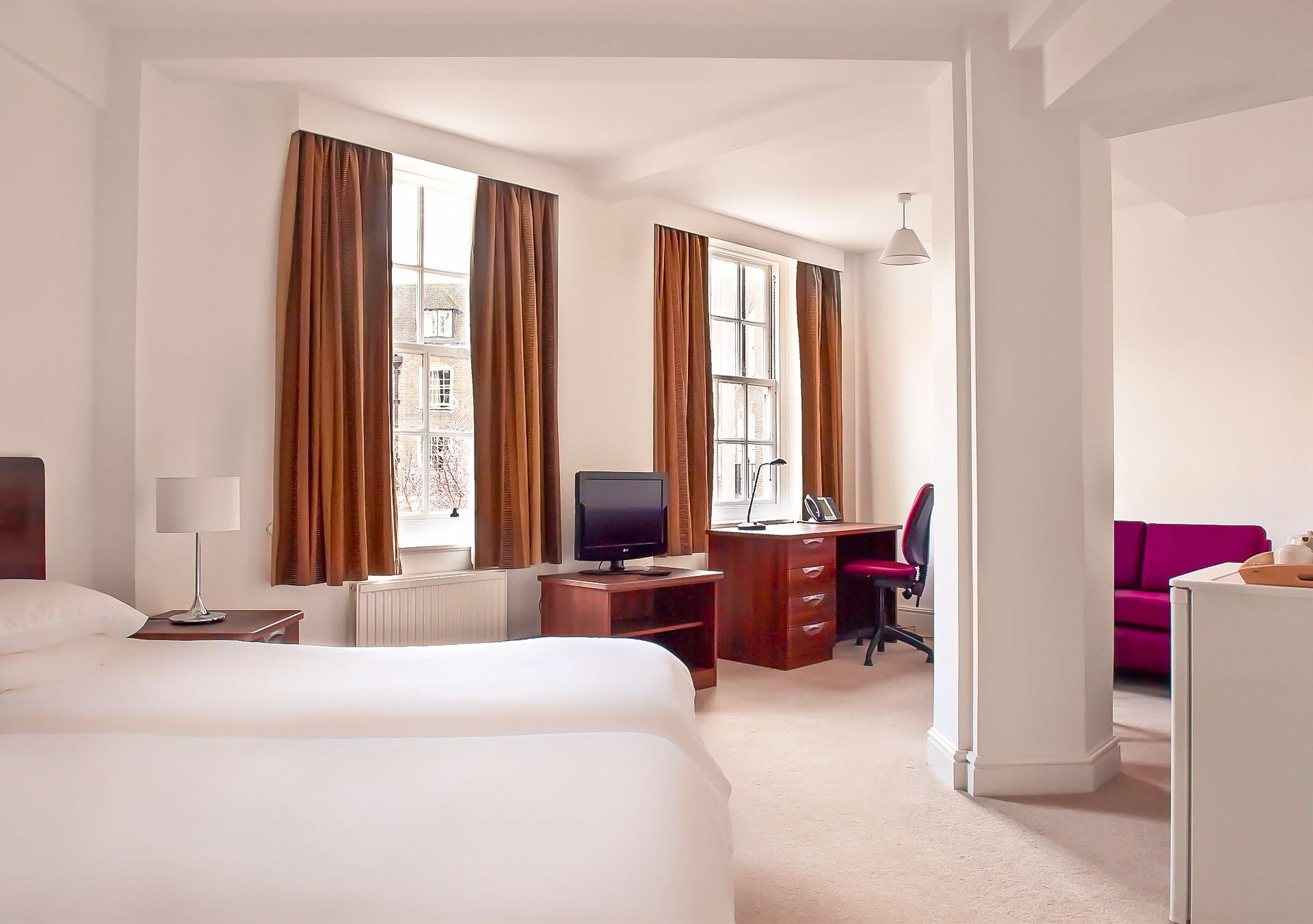Bed & Breakfast accommodation in UK University Colleges
A great value alternative to a cheap hotel, B&B or hostel. Not just for students - anyone can book!
Bed and breakfast or self-catering rooms
We bring together over 100 universities, colleges, and student residences in 30+ UK cities, which use us to fill their empty rooms during the Summer, Christmas and Easter holidays. Whether you are aged 18 or 80, you'll find this a suprisingly convenient and affordable accommodation option.
Long-stay student accommodation
Are you a student looking for accommodation for a month, a term or a year? Some rooms in London are available to students on a long-term basis - a great alternative to UK hostel.
Daniel, the porter, was absolutely brilliant. Funny, helpful, really chatty and lovely. Thank you! The three fire alarms and the dodgy, rocking, wall socket were minor blips!
Review of Somerville College, Oxford
